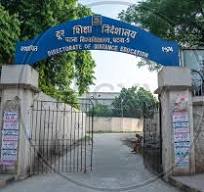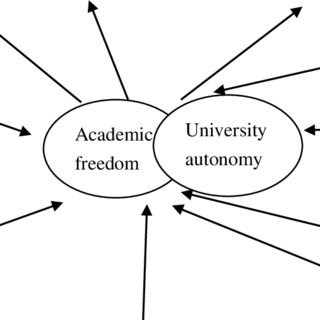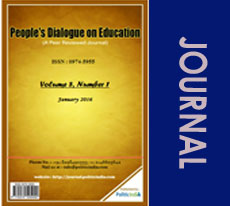Policy Analysis: Growing Concern Regarding UGC-DEB Policy Towards ODL Institutions of Dual Mode University
- Post By PoliticIndia.com on
- 05/Jul/2024

Khagendra Kumar
The education system in India has long been a critical element in shaping the country's socio-economic landscape. The establishment of universities and colleges in India is governed by various regulatory bodies to ensure that these institutions meet certain standards of quality and deliver educational services effectively. The National Assessment and Accreditation Council (NAAC) is one such body that accredits institutions of higher education in India. NAAC accreditation is crucial for universities and colleges to operate, requiring a minimum grade for these institutions to continue functioning.
However, there is a growing concern regarding the policies governing the accreditation and operation of institutions of distance and open learning (ODL) under regular universities. According to the University Grants Commission - Distance Education Bureau (UGC-DEB), an institution of distance and open learning cannot function unless the parent university has a NAAC grade of A or is ranked within the top 100 in the National Institutional Ranking Framework (NIRF). This policy has sparked considerable debate, with many arguing that it is unjustified and detrimental to the mission of providing accessible higher education to the underprivileged and those in remote areas.
The Role and Importance of Open and Distance Learning
Open and Distance Learning (ODL) plays a crucial role in the Indian education system. It provides opportunities for higher education to individuals who are unable to attend regular on-campus programs due to various constraints, such as financial limitations, geographical barriers, or personal commitments. ODL institutions offer flexible learning schedules and study materials that can be accessed remotely, making education more accessible to a larger population.
The National Education Policy (NEP) 2020 recognizes the importance of ODL in achieving the Gross Enrolment Ratio (GER) target of 50% by 2035. The NEP 2020 emphasizes the need to expand access to education, particularly for marginalized and disadvantaged groups. ODL is seen as a key mechanism to achieve this goal, as it can reach students in rural and difficult-to-reach areas, providing them with the opportunity to pursue higher education and improve their socio-economic status.
The UGC-DEB Policy on Accreditation and Its Implications
The UGC-DEB's policy requiring institutions of distance and open learning to be accredited with a NAAC grade A or to be ranked within the top 100 in the NIRF has been met with widespread criticism. Critics argue that this policy is illogical and detrimental to the noble function of ODL institutions, which is to provide higher education to millions of underprivileged and needy students. The requirement for a high NAAC grade or a top NIRF ranking excludes many universities that may not meet these criteria but still offer quality education through their ODL programs.
One of the primary concerns with this policy is its impact on the GER of the country. By imposing stringent accreditation requirements on ODL institutions, the policy effectively shuts down many dual-mode universities (institutions that offer both regular and distance learning programs). This closure limits the availability of higher education opportunities, particularly for students in rural and remote areas, thus hindering the country's efforts to achieve the GER target set by NEP 2020.
For instance, if a university offering both regular and ODL programs is unable to secure a NAAC grade A or rank within the top 100 in the NIRF, it would be forced to discontinue its ODL programs. This would significantly reduce the number of students who can access higher education, particularly those who rely on ODL due to their inability to attend regular classes. Consequently, the overall GER would decline, making it challenging for the country to meet its educational targets.
The Need for Re-evaluation of the Policy
The UGC-DEB must reconsider its policy on the accreditation of ODL institutions under regular universities. The current policy appears to be counterproductive to the goals of increasing access to higher education and achieving the GER target. Instead of imposing stringent accreditation requirements, the UGC-DEB should focus on creating a supportive framework that encourages the growth and development of ODL institutions.
One possible approach is to implement a more inclusive accreditation system that recognizes the unique challenges and contributions of ODL institutions. Rather than requiring a high NAAC grade or a top NIRF ranking, the accreditation process should consider factors such as the quality of study materials, the effectiveness of student support services, and the outcomes achieved by students in ODL programs. This would provide a more comprehensive assessment of the quality of ODL institutions and ensure that deserving institutions are not excluded based on arbitrary criteria.
For example, an ODL institution that provides high-quality study materials and effective student support services but does not have a high NAAC grade or NIRF ranking should still be recognized for its contributions to education. By adopting a more holistic approach to accreditation, the UGC-DEB can ensure that quality ODL programs continue to operate and serve the needs of students.
Promoting Quality Education in ODL Institutions
To ensure that ODL institutions provide quality education, the UGC-DEB can implement measures to enhance the teaching and learning experience in these institutions. This can include:
Capacity Building
Providing training and development programs for faculty and staff in ODL institutions to improve their teaching skills and understanding of distance education methodologies. Capacity-building initiatives can help educators adapt to the unique challenges of teaching in a distance learning environment and ensure that they can effectively support their students.
Technological Support
Facilitating access to advanced technologies and digital tools that can enhance the delivery of online education and improve student engagement. For example, the UGC-DEB can provide grants or subsidies for ODL institutions to invest in learning management systems, virtual classrooms, and other technologies that enhance the online learning experience.
Quality Assurance Frameworks
Establishing robust quality assurance frameworks that monitor and evaluate the performance of ODL institutions based on various parameters, including student satisfaction, academic outcomes, and employability of graduates. By implementing regular assessments and reviews, the UGC-DEB can ensure that ODL institutions maintain high standards of education and continuously improve their offerings.
Collaborations and Partnerships
Encouraging collaborations between ODL institutions and industry, research organizations, and other universities to enhance the curriculum, provide practical learning opportunities, and improve the overall quality of education. For example, partnerships with industry can help ODL institutions develop programs that are aligned with current job market needs, ensuring that graduates are well-prepared for employment.
Addressing the Concerns of Private Institutions
The policy's impact on the growth of private institutions has also been a point of contention. Critics argue that the stringent accreditation requirements for ODL institutions under regular universities may inadvertently promote the proliferation of private institutions, which are often profit-driven and may not provide the same quality of education. This shift towards private institutions can make higher education more expensive and less accessible to the underprivileged.
Regulating Private Institutions
The UGC-DEB must strike a balance between regulating the quality of education and ensuring that higher education remains accessible and affordable. This can be achieved by implementing strict regulations and monitoring mechanisms to ensure that private institutions maintain high standards of education and do not exploit students for profit. For example, the UGC-DEB can require private institutions to undergo regular quality assessments and audits to ensure that they meet the same standards as public institutions.
Supporting Public Institutions
Providing financial and infrastructural support to public ODL institutions to help them meet accreditation standards and continue offering quality education. For instance, the UGC-DEB can offer grants or subsidies to public universities to improve their infrastructure, develop high-quality study materials, and enhance student support services.
Encouraging Public-Private Partnerships
Promoting collaborations between public and private institutions to leverage the strengths of both sectors and improve the overall quality and accessibility of higher education. For example, public-private partnerships can help ODL institutions develop innovative programs, share resources, and provide students with access to a wider range of learning opportunities.
Conclusion
The UGC-DEB's policy on the accreditation of ODL institutions under regular universities has significant implications for the Indian education system. While the intention behind the policy may be to ensure quality education, its current implementation appears to be counterproductive to the goals of expanding access to higher education and achieving the GER target set by NEP 2020.
To address these concerns, the UGC-DEB must re-evaluate its policy and adopt a more inclusive and supportive approach towards ODL institutions. By focusing on enhancing the quality of education through capacity building, technological support, and quality assurance frameworks, the UGC-DEB can ensure that ODL institutions continue to play a vital role in providing higher education to millions of underprivileged and needy students. This, in turn, will help India achieve its cherished goal of a GER of 50% by 2035, as envisioned by NEP 2020.
References
-
National Assessment and Accreditation Council (NAAC). (n.d.). About NAAC. Retrieved from https://www.naac.gov.in/about-us
-
University Grants Commission - Distance Education Bureau (UGC-DEB). (n.d.). Guidelines for Accreditation. Retrieved from https://www.ugc.ac.in/deb
-
Ministry of Education, Government of India. (2020). National Education Policy 2020. Retrieved from https://www.education.gov.in/sites/upload_files/mhrd/files/NEP_Final_English_0.pdf
-
NIRF India Rankings. (n.d.). Methodology. Retrieved from https://www.nirfindia.org/Home
-
Sharma, R. (2020). The Role of Open and Distance Learning in Achieving the GER Target. Journal of Higher Education, 45(3), 112-123.
-
Singh, A. (2021). Challenges and Opportunities in Distance Education in India. International Journal of Educational Research, 52(2), 89-104.





